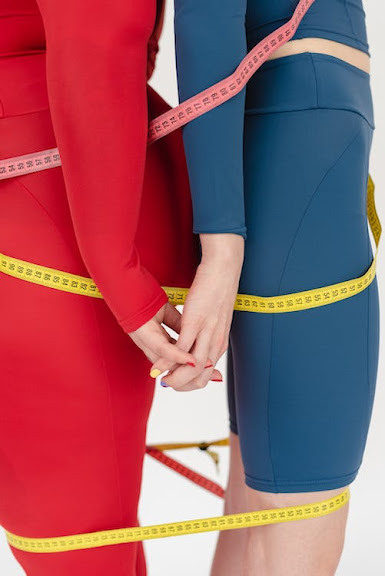- Women
often face hormonal changes, which make weight loss more challenging.
- Differences
in muscle mass can cause men to lose weight more quickly than women.
- Societal
pressures and stress can make weight loss harder for women.
- Pregnancy
can cause significant weight gain, making weight loss after childbirth
more challenging.
- Fitness
solutions for women include cardiovascular exercise, resistance training,
and high-intensity interval training.
Weight loss is a journey that many people embark on, but it's not always an easy one. Research shows that women often have more difficulty losing weight than men. There are several reasons why this may be the case, including hormonal changes, differences in muscle mass, and societal pressures. However, understanding these factors and how they impact weight loss can help women achieve their goals more quickly.
Women and Weight Loss
Losing weight is crucial for women's health, yet it can be
more challenging for women than men. This is due in part to several factors
that are unique to women. Here is a look into those factors.
Hormonal Changes
One of the most significant reasons women have a more
challenging time losing weight is hormonal changes. Hormones
like estrogen, progesterone, and testosterone play a vital role in regulating
metabolism, appetite, and fat storage. When these hormones fluctuate, as they
do during menstrual cycles, pregnancy, and menopause, women's bodies react
differently than men's. For example, women may experience more intense food
cravings during certain times of the month or struggle to lose weight during
menopause due to changing hormone levels.
Differences in Muscle Mass
Another factor that makes weight loss harder for women is
the difference in muscle mass between men and women. Generally speaking, men have a higher muscle mass than women,
which means they burn more calories at rest.
As a result, men may lose weight more quickly than women,
even following the same diet and exercise plan. However, this doesn't mean that
women can't build muscle or that it's impossible to lose weight. Strength
training can help women build muscle mass and boost their metabolism, leading
to tremendous weight loss success.
Societal Pressures
Unfortunately, many women face societal pressures that can
make weight loss even harder. From unrealistic body standards in the media
to diet culture and fat phobia, women are often bombarded with messages that
make them feel ashamed of their bodies. This can lead to disordered eating,
a negative self-image, and difficulties sticking to healthy habits, such as
exercising and eating a balanced diet. To overcome these challenges, women must
prioritize their mental and emotional health while focusing on physical health.
Pregnancy
Pregnancy can cause significant weight gain for women,
making it harder for them to lose weight following childbirth. The hormone
changes and lack of sleep that come with having a newborn can make it even more
challenging to lose weight. Extra fats may also remain after giving childbirth.
These kinds of fats may be harder to remove and may require treatment. The
right weight loss solution can make a difference in removing all
these fats. Moreover, having a proper diet while breastfeeding can also be
helpful.
Stress
Finally, stress can also make weight loss harder for women.
Stress triggers the release of cortisol, a hormone that can lead to increased
appetite, fat storage, and weight gain, particularly in the abdominal area. Women,
in particular, may experience more stress than men due to various factors, such
as work-life balance, caregiving responsibilities, and societal expectations.
To combat stress, women must prioritize self-care activities, such as yoga,
meditation, or time in nature, and practice healthy coping mechanisms like
journaling or talking with a therapist.
Fitness Solutions For Women to Lose Weight
Thankfully, there are some great fitness solutions for women
to lose weight. Here are some of them:
Cardiovascular Exercise
Cardio workouts are great for weight loss as they help burn
calories and increase metabolism. Aim for at least 150 minutes of
moderate-intensity cardio per week to lose weight. This could be running, brisk
walking, cycling, swimming, or even dancing. If you're new to cardio, start
small and gradually increase the duration and intensity of your workouts.
Resistance Training
Resistance exercises help build lean muscle mass, which in turn
increases your metabolism and helps your body burn more calories even at rest.
Aim for at least two weekly strength training sessions focusing on all major
muscle groups. You can do this with weights, resistance bands, or bodyweight
exercises like push-ups, squats, and lunges.
High-Intensity Interval Training (HIIT)
HIIT follows short bursts of intense activity followed by
brief recovery periods. This type of workout increases your VO2 max and boosts
your metabolism, resulting in more calories burned throughout the day.
Incorporate HIIT into your routine by doing 20 to 30-second sprints followed by
a 10-second rest period, repeated for 10 to 12 rounds. This can be done on a
treadmill, bike, or outside.
Weight loss is a journey, and it's important to remember that everyone will have different results. However, understanding the factors that make weight loss harder for women can help you tweak your approach and create a plan that works for you. You can achieve your weight loss goals with the right mindset and fitness plan.






